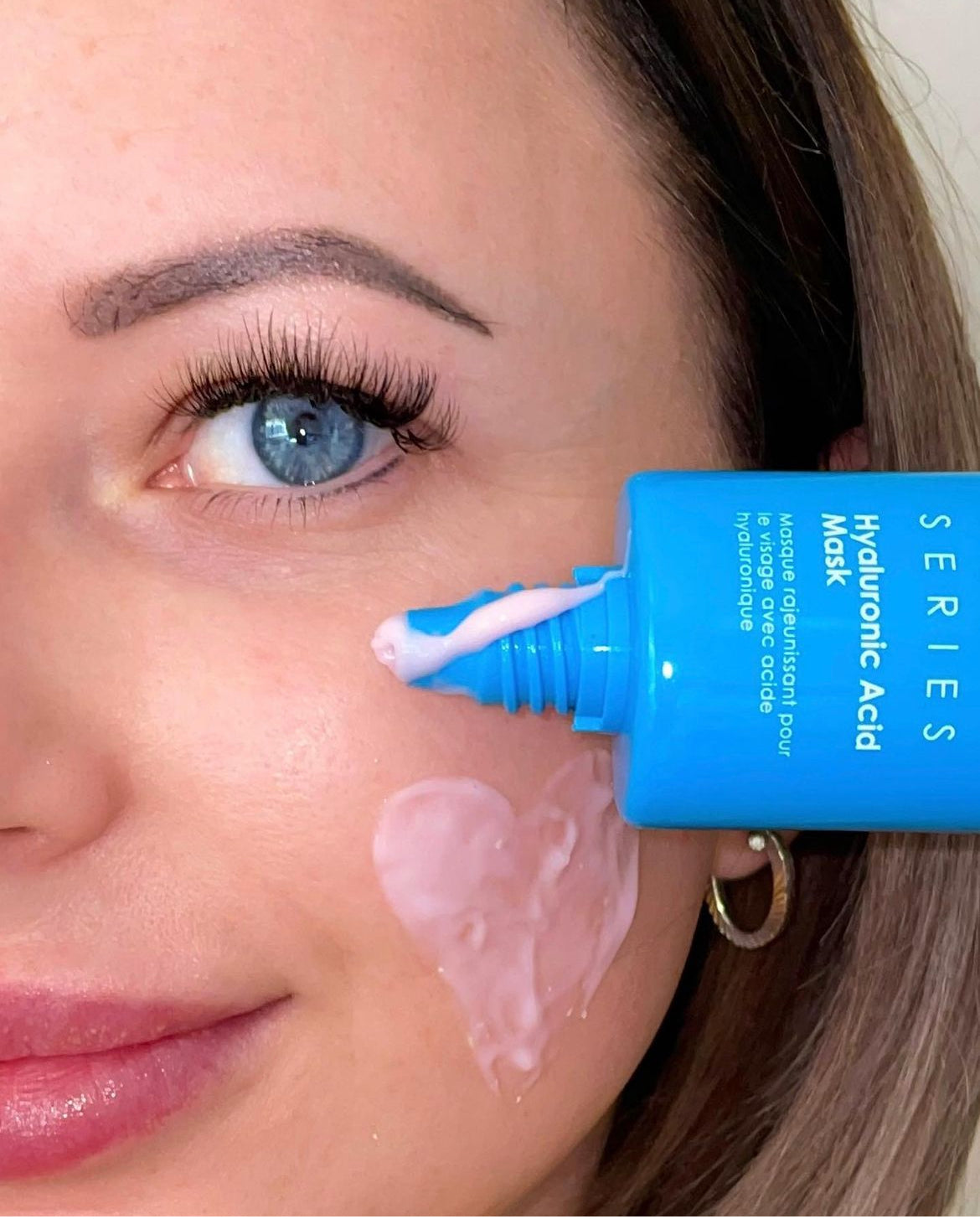Retinol

Welcome to our new Skincare School! We want to give you the best tips and tricks on how to make the most of your skincare regime and utilise some amazing active ingredients!
Our focus for this week is going to be anti-ageing hero, Retinol!
As you may have seen on the Daily Mail, Dr Imaan Joshi spoke about retinol as part of her skincare regime. She is making the most of targetd product applications.
As an greatly misunderstood ingredient, Retinol is a powerful active that has become increasingly popular. It is now on every dermatologists list of essential skincare and on the tip of the tongue of many a skincare fan. Nowadays, there’s so much choice our there it can be hard to choose. That’s why we’re put together this informative guide alongside our beginner friendly Retinol Range - but whatever you Retinoid product you choose to pick, you’ll need to know what your putting on your skin.
There is still a lot of confusion when it comes to retinol, and retinoids in general.
What actually is Retinol?
Retinol is a derivative of Vitamin A and falls under the umbrella term of a Retinoid. There are varying levels of Retinoids, depending on their strength, from prescription level to gentler, over-the-counter formulations.
Studies have proven Retinoids abilities vary across a number of skin concerns. They are well known to influence cellular processes, from cellular growth and differentiation, to cell surface alterations and immune modulation.
How does it work?
Retinoids work by accelerating the rate of cell turnover in the skin. Small molecules go deep beneath the epidermis, down to the dermis; once there, they help to neutralise free radicals, which in turn help to boost production of elastin and collagen (creating that plumping effect).
It has been observed that Retinol formulations result in significant improvement in fine lines and wrinkles, as well as a multitude of other benefits.
What are these multitude of benefits?
Reducing fine lines, treating acne, reducing pigmentation, clearing pores and revealing brighter skin are amongst some of the studied results5 of retinol usage.
The increased turnover and collagen stimulation can help to increase the firmness of skin through plumping, a key sign of ageing. But it can also be beneficial for those suffering from acne and blemises by blocking skin reactions that can make it worse, so it really is worth getting used to as a ingredient that here’s to stay.
Check out our Retinol Range to start implementing Retinol into your own individual skin care wardrobe. Like our 1% Retinol Eye Serum or our 5% Retinol Facial Serum.
How am I meant to use Retinol?
Now, you can’t simply start using a retinol product like it’s your next daily moisturiser. You’ll want to allow your skin to build up a tolerance to the powerful ingredient and add it gradually into your regime. Not just in terms of amount, but also the percentage in the product of your choosing. This is help you avoid unwanted side effects.
Don’t let that put you off though; it a proven ingredient known to reduce the appearance of ageing and it a skilled skin moisturiser. Whilst there’s no set time to start using it, advice often states the mid-twenties to early 30s as the best time.
You’ll also want to ensure that you’re cutting down on other exfoliators, such as AHA and BHA when using a retinol product as it can be more irritating on the skin than it would be usually - pay attention to your skin and don’t overload it with active ingredients.
What are the side effects of Retinol usage?
Retinoids are not for everyone - if you suffer from some skin conditions, such as rosacea, eczema or psoriasis, it’s best to avoid using them as they can be far too powerful for sensitive skin. This is because it can increase inflammation, dryness and sensitivity in the skin.
For those teaching their skin to adapt, the most common side effects are not often permanent, and only last a couple of weeks whilst the skin adjusts.
There’s one more big thing to consider…
If you’re adding a Retinoid into your skincare routine, you’re going to need to make sure that SPF becomes your best friend.
As they work by increasing cell turnover, this can make your skin more sensitive and temporarily thinner, leaving your skin more prone to photosensitivity from the sun.
As a result, you’ll want to use a broad spectrum sun cream in the morning, and during the day. If you’ve never used it before, maybe consider starting treatment outside of the summer months; this way you’ll avoid baring your skin to increased levels of sun exposure.
Why not try pairing our favourite 1% Retinol Night Moisturiser with our Wrinkle Killer SPF50 to ensure that you’re keeping your skin as protected as you can.



